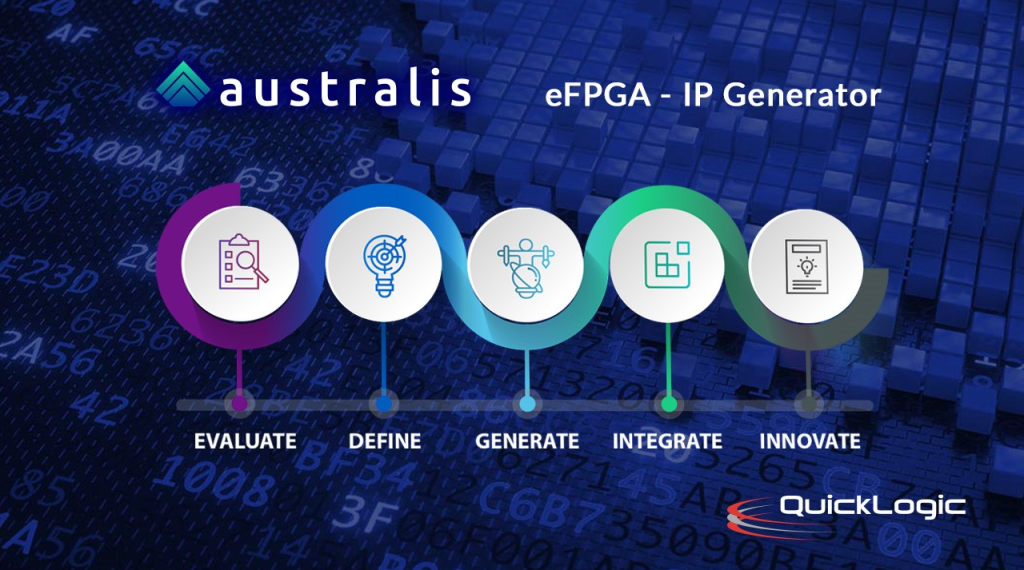Several Key Challenges Facing Our Industry
We are at a unique inflection point in the semiconductor industry. On one hand, the physical manifestation of Moore’s Law has given us devices with amazing capabilities. On the other hand, as an industry we are struggling to continue down that path as power consumption, density and other physical limitations are becoming significant issues. To compound the problem, pandemic-induced supply constraints have made it difficult for customers to get many of the standard devices previously available almost on demand.
Those factors have led developers to strongly consider domain- and even customer-specific silicon. However, the high cost and long design time associated with developing custom silicon, as well as rapidly changing market needs, introduce risk and uncertainty.
Embedded FPGA (eFPGA) technology was developed to address those concerns. By embedding FPGA technology in an ASIC or SoC, customers could get their own customized devices with the flexibility to make design changes as market needs evolved.
However, historically eFPGA IP has been “handcrafted” to meet a particular customer’s needs and to target a particular foundry and process node. The handcrafting takes valuable time and resources and results in a product with limited-to-no portability to other foundries or processes.
Introducing Australis…
During our earnings announcement, we mentioned a “soon-to-be-announced automated IP generator flow” integrating open-source software. Australis is the embodiment of that flow – an eFPGA IP generator which provides ASIC and SoC developers with an easy, highly automated way to define and implement customized eFPGA IP for their devices. Australis is so flexible it can automatically generate eFPGA for nearly any foundry and process node.
That’s because we built it using the OpenFPGA IP generator as a foundation, and then added features and capabilities specific to our eFPGA IP solutions along with the level of testing required to make the offering robust enough for enterprise applications. We’ve been impressed by the OpenFPGA framework and are excited to build on that work to truly democratize programmable logic for the widest possible range of ASIC/SoC applications.
As you can see, we have not only led the industry by actively embracing the open-source tool concept, but have actually started integrated it into our own product offerings. That approach has saved us time and money and given us a more universal tool which we believe many customers will find invaluable.
We expect Australis to give customers the ability to not only address changing market conditions, but also the evolution of new standards, customized implementations for intellectual property protection, offloading and hardware acceleration of artificial intelligence/machine learning workloads, or simply creating a range of product variants for fragmented markets.
We call this product strategy “mass customization”. At QuickLogic we strongly believe that one size does not fit all, and that the best way to capture the full market potential of a product is to add the flexibility provided by embedded FPGA technology and then have that technology be portable for easy and cost-effective device manufacturing. That’s exactly what Australis enables.
—
Read the press release that we issued today.

